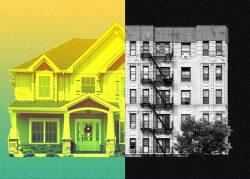As rent and inflation continue to rise across the country, an increasing number of North Texas residents are losing their homes as evictions rise with them — a trend that could accelerate the upward spiral of housing costs.
Data from the North Texas Eviction Project shows that the rate of evictions across the entire North Texas region — including Dallas, Fort Worth, McKinney, and Denton — are rising dramatically as inflation and gas prices impact the economy.
The biggest contributor to the surge is likely the lack of new funding for many relief programs that tenants relied on during the pandemic, according to a report by NBC-DFW.
“Now that those are gone, the assistance programs are beginning to dwindle. Cost inflation is hitting people in the pocketbook and it’s becoming more and more difficult to pay that rent,” Marc Moffitt, a licensed realtor and professor of real estate at the University of North Texas G. Brint Ryan College of Business told the station.
Read more


There were over 86,000 filings in total across the region between Jan. 1 and June 3, with 40,000 in Dallas alone, according to the data. The findings demonstrate the larger problem posed by inflation that’s not exclusive to North Texas, and has been weighing on renters across the state this year.
“Renters are in a very difficult situation right now because the two options that they have are to face higher rents or to go out and buy a home,” said Moffi, who is also a landlord, pointing out that most property owners aren’t eager to initiate eviction proceedings if they can avoid it.
“Most property owners and managers don’t want to go to court. They want to try to work things out. They just want to be paid. So if you could stay in communication and you can pay something and keep them apprised of what’s going on, generally speaking, that’s going to work out better for you”, Moffit said.
But as rents have spiraled upwards while so many pre-Covid leases have been held in limbo by eviction moratoriums and relief programs, some landlords may see an upside in leasing to new tenants at much higher rents.
Mass evictions could thus accelerate rent hikes in those communities already struggling to keep up with rising costs as newly reset rents increase neighborhoods’ average market rates, which will have knock-on effects on the rest of the local market.
[NBC-DFW] — James Bell
